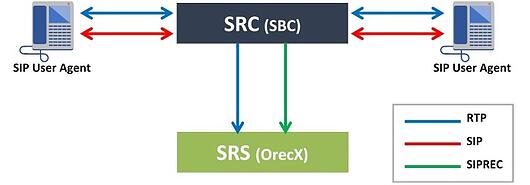Open source call recording brings many benefits over traditional proprietary call recording systems - namely, flexibility, cost savings, data control, openness and more.
SIPREC is a SIP protocol for call recording, based on IETF standards, and it is used for establishing an active recording session and reporting the metadata of the session. Open source SIPREC is particularly attractive to VoIP service providers as the auto-provisioning capabilities of open source SIPREC are much easier to administer. This means service providers can get their clients up and running faster and with less hassle/resources.
The flexibility of open source SIPREC enables service providers to add call recording as a service to their portfolio of offerings without costly and time-consuming integration, API development, and so on. It's as simple as turning on the service to new or existing clients. With open source SIPREC, service providers also enjoy easier call recording system deployment and concurrent call capture.

Here are some of the many advantages of open source SIPREC:
- Scalability to thousands of concurrent calls
- Interoperability (OrecX open source SIPREC supports Avaya, Cisco BIB, Broadsoft, Metaswitch, Ribbon, Oracle/Acme and more)
- Open database schema, file formats and API
- Highly efficient (configure only the traffic you need to record)
- Low cost of ownership
There are two key components of SIPREC interactions:
1. Session Recording Client (SRC) – the SBC or PBX
- Avaya, Cisco, Broadsoft, Metaswitch, Ribbon, Oracle, Sonus are some of the telephony platforms that support SIPREC.
2. Session Recording Server (SRS) – a call recording platform
- OrecX is the most widely used open source SIPREC call recorder.
Click here to learn more about OrecX open source SIPREC.
Also check out our blog post titled "Growing Prominence of the SIPREC Call Recording Standard"

